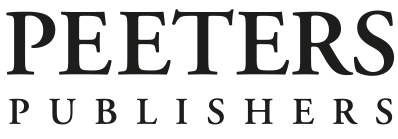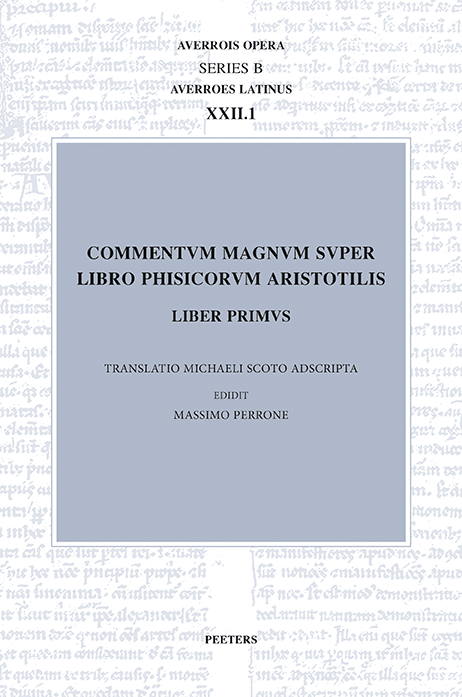year: 2025
isbn: 9789042954793
e-isbn: 9789042957046
pages: XII-118*-227 p.
Commentum magnum super libro Phisicorum Aristotilis. Liber primus
Translatio Michaeli Scoto adscripta
auteur:
Résumé:
Ibn Rušd (1126-1198), commonly known in the Middle Ages as Averroes, commented on all the major works of Aristotle and profoundly influenced later Medieval and Renaissance philosophy. Notably, he wrote three works on the Physics: the Short, Middle, and Long Commentary. While only the Short Commentary survives in Arabic, the Middle and the Long Commentaries are preserved in Latin and Hebrew translations. Although Aristotle’s Physics had already been translated from Greek into Latin by James of Venice (12th century) and from Arabic by Gerard of Cremona (ca. 1114-1187), the new translation from Arabic accompanied by Averroes’s commentary gained wider circulation, as evidenced by the large number of manuscripts. This translation, which is generally attributed to Michael Scot (ca. 1175-1235), was likely produced at the court of Frederick II (1194-1250).
This volume presents the first critical edition of Book I of the Long Commentary on the Physics. The introduction analyses the Latin manuscript tradition in detail and outlines the principles adopted for the reconstruction of the text. An appendix compares several passages from the Latin translation of the Physics with Ishaq ibn Hunayn’s Arabic translation of the Physics, on which Averroes’s commentary is based. In Book I, some fundamental aspects of natural philosophy are discussed. These include the epistemological status of scientific knowledge; the inductive method, which Averroes calls “proof from signs”; the study of causes common to all natural entities subject to motion; the criticism of monistic philosophers and pluralistic physicists; and the doctrine of the three principles (form, privation, and their common substratum, matter). Averroes’s criticism of Avicenna is also remarkable. In particular, Averroes criticises Avicenna’s theory of prime matter, diverging from his predecessor’s view. Unlike Avicenna, Averroes argues that the demonstration of prime matter belongs to the domain of natural philosophy rather than metaphysics.
This volume presents the first critical edition of Book I of the Long Commentary on the Physics. The introduction analyses the Latin manuscript tradition in detail and outlines the principles adopted for the reconstruction of the text. An appendix compares several passages from the Latin translation of the Physics with Ishaq ibn Hunayn’s Arabic translation of the Physics, on which Averroes’s commentary is based. In Book I, some fundamental aspects of natural philosophy are discussed. These include the epistemological status of scientific knowledge; the inductive method, which Averroes calls “proof from signs”; the study of causes common to all natural entities subject to motion; the criticism of monistic philosophers and pluralistic physicists; and the doctrine of the three principles (form, privation, and their common substratum, matter). Averroes’s criticism of Avicenna is also remarkable. In particular, Averroes criticises Avicenna’s theory of prime matter, diverging from his predecessor’s view. Unlike Avicenna, Averroes argues that the demonstration of prime matter belongs to the domain of natural philosophy rather than metaphysics.


 Français
Français
 Ajouter au panier
Ajouter au panier
